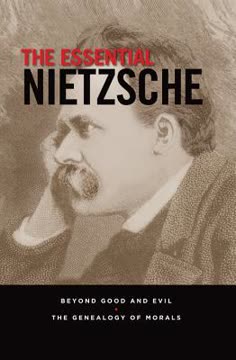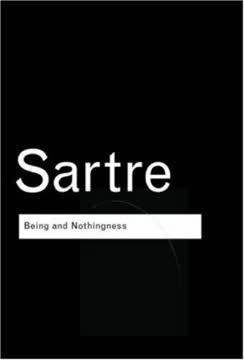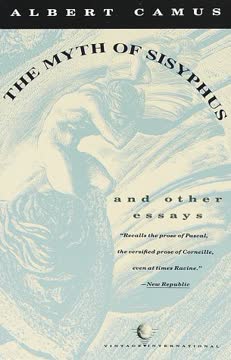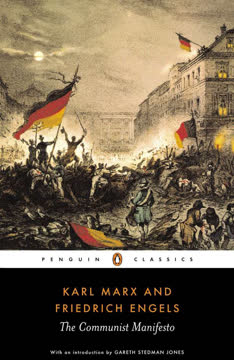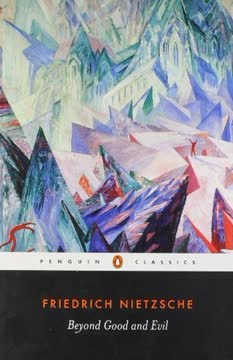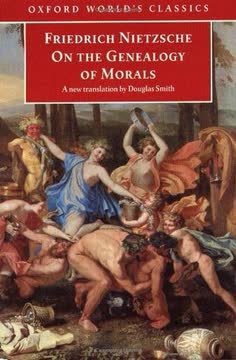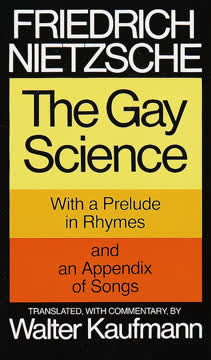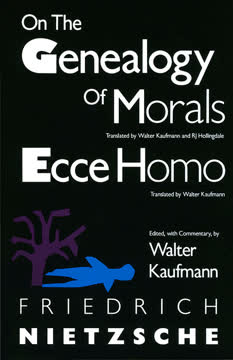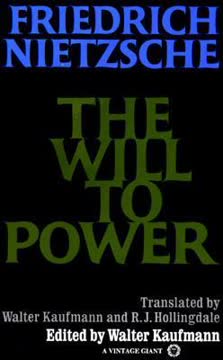Key Takeaways
1. Philosophical Truths Often Mask Personal Confessions
Gradually it has occurred to me what every great philosophy has been so far: namely the personal confession of its author and a kind of involuntary and unnoticed memoires; likewise that the moral (or immoral) intentions in every philosophy constitute the actual living seed from which the entire plant has grown every time.
Philosophical systems as self-revelation. Nietzsche argues that philosophical systems are not objective truths but rather personal confessions and memoirs of their creators. A philosopher's moral intentions are the "living seed" from which their entire philosophical plant grows. To understand a philosopher's metaphysical claims, one must first ask, "At what morality is it (or is he-) aimed?"
Drives behind philosophy. Nietzsche rejects the notion that a "drive for knowledge" is the primary motivator behind philosophy. Instead, he suggests that other drives, such as the will to power, use knowledge as a tool. By examining the basic human drives, one can uncover the hidden intentions and motivations behind philosophical systems.
Philosophers vs. scholars. Nietzsche distinguishes between philosophers and scholars, noting that scholars may have a genuine "knowledge-drive," but their personal interests often lie elsewhere. In contrast, a philosopher's morality provides decisive testimony to who they are and the order of rank among their innermost drives.
2. Morality is a Tool of Power, Not an End in Itself
For every drive is bent on ruling: and as such it attempts to philosophize.
Morality as a power play. Nietzsche views morality not as an objective standard of right and wrong but as a tool used by different drives and groups to assert their dominance. Each drive seeks to present itself as the ultimate purpose of existence and the rightful master of all other drives. This perspective challenges the traditional view of morality as a disinterested pursuit of the good.
The will to power. Nietzsche posits that the will to power is the fundamental drive underlying all human behavior, including morality. Every drive is bent on ruling, and as such, it attempts to philosophize and impose its values on others. This perspective challenges the traditional view of morality as a disinterested pursuit of the good.
Stoicism as self-tyranny. Nietzsche critiques the Stoic imperative to "live according to nature," arguing that it is a fraud of words. Living, he contends, is precisely wanting to be different than nature, which is indifferent, unjust, and limited. The Stoics, in reality, seek to prescribe their morality onto nature, demanding that it conform to their own image of existence.
3. The Value of Truth is a Dangerous and Unsettled Question
Suppose we want truth: why not rather untruth? And uncertainty? Even ignorance?
Questioning the will to truth. Nietzsche challenges the traditional philosophical assumption that truth is inherently valuable. He asks why we should prioritize truth over untruth, uncertainty, or even ignorance. This questioning of the value of truth is a central theme in Nietzsche's philosophy.
Truth as a condition of life. Nietzsche suggests that untruth may be a condition of life, arguing that the falsest judgments are often the most indispensable to us. Without logical fictions and constant falsification of the world, mankind could not live. This perspective challenges the accustomed value-emotions and places Nietzsche's philosophy beyond good and evil.
Appearance vs. truth. Nietzsche questions the essential opposition between "true" and "false," suggesting that it may suffice to assume stages of apparentness and different shades of appearance. He even entertains the possibility that the world that concerns us is a fiction, challenging the traditional philosophical faith in grammar and the subject.
4. Master and Slave Moralities Define Human History
In truth things are quite different: in gleefully alleging to read the canon of your law out of nature, you really want the reverse, you strange actors and self-deceivers!
Two fundamental moralities. Nietzsche identifies two basic types of morality: master morality and slave morality. Master morality arises from a dominating type that affirms its own values and sees itself as "good" in contrast to the "bad" qualities of the dominated. Slave morality, on the other hand, originates from the oppressed and emphasizes values such as compassion, humility, and self-denial.
Revaluation of values. The slave revolt in morality begins when ressentiment becomes creative and gives birth to values. Slave morality says No to an "outside," to a "different," to a "non-self," and this No is its creative deed. This revaluation of values is a key feature of slave morality.
The noble vs. the resentful. The noble human being feels itself to be value-determining and does not need approval. In contrast, the human being of ressentiment is neither upright nor naive, and his soul squints. This fundamental difference in perspective shapes their respective moral valuations.
5. The Ascetic Ideal: A Life-Denying Force Masquerading as Virtue
To sacrifice God for nothingness-this paradoxical mystery of the ultimate cruelty was reserved for the generation that is now emerging: all of us already know something of this.
Asceticism as a will to nothingness. Nietzsche identifies the ascetic ideal as a will to nothingness, a counterwill against life that rejects the most fundamental presuppositions of existence. This ideal, which is characterized by a hatred of the human, the animal, and the material, seeks to negate the senses, reason, and the will itself.
The ascetic priest. The ascetic priest is the direction-changer of ressentiment, exploiting the bad instincts of all suffering people for the purpose of self-discipline and self-overcoming. This priest, who is often sick himself, uses religion to spread sunshine on eternally tormented people and make them bearable in their own sight.
The ladder of religious cruelty. Nietzsche outlines a great ladder of religious cruelty, beginning with the sacrifice of human beings to their god, then the sacrifice of the strongest instincts, and finally the sacrifice of God himself for nothingness. This paradoxical mystery of ultimate cruelty is reserved for the generation that is now emerging.
6. Bad Conscience: Humanity's Cruelest Invention
To translate humankind back into nature; to master the many vain and gushing interpretations and connotations that have so far been scribbled and painted over that eternal basic text homo natura.
Internalization of instincts. Bad conscience arises from the internalization of instincts that are no longer allowed to be expressed outwardly. This process, which is driven by the state's need to tame and control its citizens, turns the human being against itself.
Guilt before God. The feeling of guilt before God becomes an instrument of torture, with the human being imagining himself punished without the possibility of atonement. This leads to a paradoxical mystery of the ultimate cruelty, in which God sacrifices himself for the guilt of humanity.
The innocence of becoming. Nietzsche rejects the notion of "unfree will," which he sees as an abuse of cause and effect. He argues that cause and effect should only be used as pure concepts, not as reified entities. In the "in-itself," there is nothing of "causal connections," "necessity," or "psychological unfreedom."
7. Beyond Good and Evil: A Call for New Values and a New Nobility
The selecting, cultivating influence which can be wielded with the help of religions, which is always just as much a destroying as it is a creative and shaping influence, is manifold and different depending on the kind of people who are placed under its sway and protection.
The philosopher as cultivator. Nietzsche envisions the philosopher as someone who uses religion for works of cultivation and education, just as he uses the respective political and economic conditions. This philosopher will wield a selecting, cultivating influence, which is always just as much a destroying as it is a creative and shaping influence.
The free spirit. The philosophers of the future will be free, very free spirits, but they will not be merely free spirits. They will be something more, higher, greater, and fundamentally different. These philosophers will be at home in many countries of the spirit, forever slipping away from the musty, cozy corners into which they seem to have been banished.
The new nobility. Nietzsche calls for a new species of philosophers who are tempters, those who question all values and challenge the status quo. These philosophers will be free spirits who are not dogmatists, who do not seek to impose their truths on others, and who are willing to embrace the dangerous Perhaps.
Last updated:
FAQ
1. What is Beyond Good and Evil and The Genealogy of Morals by Friedrich Nietzsche about?
- Philosophical critique of morality: The book challenges traditional notions of morality, truth, and philosophy by tracing the historical and psychological origins of concepts like "good," "evil," "guilt," and "conscience."
- Genealogical method: Nietzsche uses a genealogical approach to show how moral values evolved from social power struggles, ressentiment, and cultural shifts rather than from objective truths.
- Critique of ascetic ideals: He examines the role of asceticism and religious values in shaping Western thought, arguing that they often suppress life-affirming instincts.
- Will to power and suffering: The works introduce the "will to power" as a fundamental force in life and explore the necessity of suffering for growth and creativity.
2. Why should I read Beyond Good and Evil and The Genealogy of Morals by Friedrich Nietzsche?
- Foundational philosophical work: These texts represent Nietzsche’s mature philosophy and are essential for understanding his critique of morality, culture, and the origins of values.
- Insight into morality’s origins: The books reveal how moral values are shaped by social, psychological, and power dynamics, challenging readers to rethink ethics and human nature.
- Influence on modern thought: Nietzsche’s ideas have profoundly impacted philosophy, psychology, and cultural criticism, making these works crucial for anyone interested in these fields.
- Invitation to self-examination: Readers are encouraged to critically examine inherited beliefs and consider the creation of new, life-affirming values.
3. What are the key takeaways from Beyond Good and Evil and The Genealogy of Morals by Friedrich Nietzsche?
- Morality is historically contingent: Moral values are not absolute but arise from social power relations and psychological drives like ressentiment.
- Critique of traditional morality: Nietzsche challenges the value of altruism, compassion, and asceticism, seeing them as life-denying forces.
- Will to power as fundamental: Life and morality are expressions of the will to power, a striving for dominance and self-overcoming.
- Call for new values: He urges the creation of new values beyond good and evil, affirming life, strength, and individuality.
4. What is Nietzsche’s genealogical method in Beyond Good and Evil and The Genealogy of Morals?
- Historical and psychological tracing: Nietzsche investigates the origins of moral concepts by examining their development through history and psychology, rather than accepting them as given.
- Uncovering hidden motives: The method reveals how values like "good" and "evil" are rooted in power struggles, social hierarchies, and psychological needs.
- Critique of objectivity: Nietzsche argues that what is considered objective truth is often a product of perspective and serves particular interests.
- Tool for reevaluation: The genealogical method is used to challenge and potentially overturn accepted moral values.
5. How does Nietzsche define and contrast "master morality" and "slave morality" in On the Genealogy of Morals?
- Master morality: Originates from the noble and powerful, defining "good" as strength, nobility, and life-affirmation, and "bad" as weakness or lowliness.
- Slave morality: Emerges from the oppressed, who invert master values by labeling the powerful as "evil" and themselves as "good," emphasizing humility and compassion.
- Moral inversion and ressentiment: Slave morality is driven by resentment and a desire for revenge, creating a value system that condemns strength and celebrates weakness.
- Social and psychological function: Both moralities serve to shape human relations and self-understanding within their respective social contexts.
6. What is Nietzsche’s concept of "ressentiment" and its role in morality in The Genealogy of Morals?
- Definition of ressentiment: Ressentiment is a deep-seated resentment and reactive hostility of the weak or oppressed toward their oppressors, who are perceived as "evil."
- Creative force of slave morality: This feeling leads to the creation of slave morality, which inverts the values of the masters and glorifies weakness and suffering.
- Psychological mechanism: Ressentiment causes the oppressed to reinterpret their impotence as moral superiority, fostering a morality based on negation and denial of life-affirming values.
- Historical impact: Nietzsche sees ressentiment as a driving force behind the rise of Christianity and modern moral systems that emphasize guilt and self-denial.
7. How does Nietzsche explain the origin and meaning of "bad conscience" in On the Genealogy of Morals?
- Internalization of instincts: Bad conscience arises when humans, once free and wild, are forced into social constraints and repress their natural instincts, turning aggression inward.
- Result of societal pressure: The formation of the state and social order imposes guilt and self-punishment as mechanisms to control and tame human impulses.
- Religious intensification: Religious doctrines intensify the feeling of guilt, framing it as sin against God and leading to self-torment.
- Psychological suffering: Bad conscience reflects humanity's alienation from its natural state and the burden of imposed morality.
8. What is the "will to power" in Beyond Good and Evil and The Genealogy of Morals by Friedrich Nietzsche?
- Fundamental life force: The will to power is described as the basic driving force in humans, underlying all behavior, morality, and knowledge.
- Contrast with will to life: Unlike Schopenhauer’s "will to life," Nietzsche’s concept emphasizes striving for dominance, self-overcoming, and creative expression.
- Shaping morality and knowledge: The will to power influences the creation of values and perspectives, challenging the idea of objective truth.
- Central to human flourishing: Nietzsche sees the will to power as essential for growth, creativity, and the affirmation of life.
9. How does Nietzsche critique traditional philosophers and their pursuit of truth in Beyond Good and Evil?
- Philosophers’ hidden motives: Nietzsche claims that philosophers are driven by personal instincts and prejudices, not pure reason or objectivity.
- Dogmatism and naivety: He criticizes dogmatic philosophy as a form of childish superstition based on unexamined assumptions.
- Truth as perspective: Nietzsche argues that what is called "truth" is often a perspective shaped by life-preserving instincts and power relations.
- Call for new philosophers: He advocates for thinkers who embrace uncertainty, perspectivism, and the creation of new values.
10. What is Nietzsche’s critique of ascetic ideals and their impact on culture in The Genealogy of Morals?
- Asceticism as life-denial: Nietzsche sees ascetic ideals as suppressing life-affirming instincts, promoting self-denial, suffering, and weakness.
- Tool of power and control: Priests and ascetics use these ideals to exert power over the weak, channeling guilt and ressentiment to maintain social order.
- Ambivalent force: While asceticism can provide meaning and structure to suffering, it also contributes to cultural decline and nihilism.
- Need for reevaluation: Nietzsche calls for a critical examination of the value of ascetic ideals and their role in shaping modern morality.
11. How does Nietzsche view suffering and its role in human life in Beyond Good and Evil and The Genealogy of Morals?
- Suffering as essential: Nietzsche sees suffering as an unavoidable and necessary aspect of life that drives growth, creativity, and the evolution of higher types of humans.
- Critique of pity: He challenges the moral elevation of pity and compassion, arguing that excessive pity can weaken life and promote decadence.
- Pathos of truth: Nietzsche insists on confronting the reality of suffering honestly, rather than denying or escaping it.
- Affirmation of existence: Embracing suffering is part of affirming life and achieving greatness.
12. What are the best quotes from Beyond Good and Evil and The Genealogy of Morals by Friedrich Nietzsche and what do they mean?
- "There are no moral phenomena at all, but only a moral interpretation of phenomena." This highlights Nietzsche’s view that morality is not inherent in actions but imposed by interpretation.
- "Whoever battles monsters should take care that he doesn't become one in the process." A warning about the dangers of adopting the traits of one’s enemies or moral adversaries.
- "Humanity would rather will nothingness than not will." This expresses Nietzsche’s belief in the fundamental drive to act, even destructively, rather than remain passive.
- "The will to truth is not an unconditional good." Nietzsche challenges the assumption that truth is always valuable, emphasizing its life-related function.
- "Master morality values pride and power; slave morality values kindness and humility." A concise summary of Nietzsche’s fundamental moral distinction.
Review Summary
Beyond Good and Evil and The Genealogy of Morals receives mixed reviews. Many praise Nietzsche's profound thoughts and literary style, particularly in German. Readers appreciate his critique of religion, morality, and philosophy. Some find the work challenging, dense, and occasionally confusing. Critics point out dated views, particularly regarding women and race. The book's aphoristic style and poetic language are both admired and criticized. Overall, readers acknowledge the work's significance in Western philosophy, even if they disagree with some ideas.
Similar Books
Download PDF
Download EPUB
.epub digital book format is ideal for reading ebooks on phones, tablets, and e-readers.
